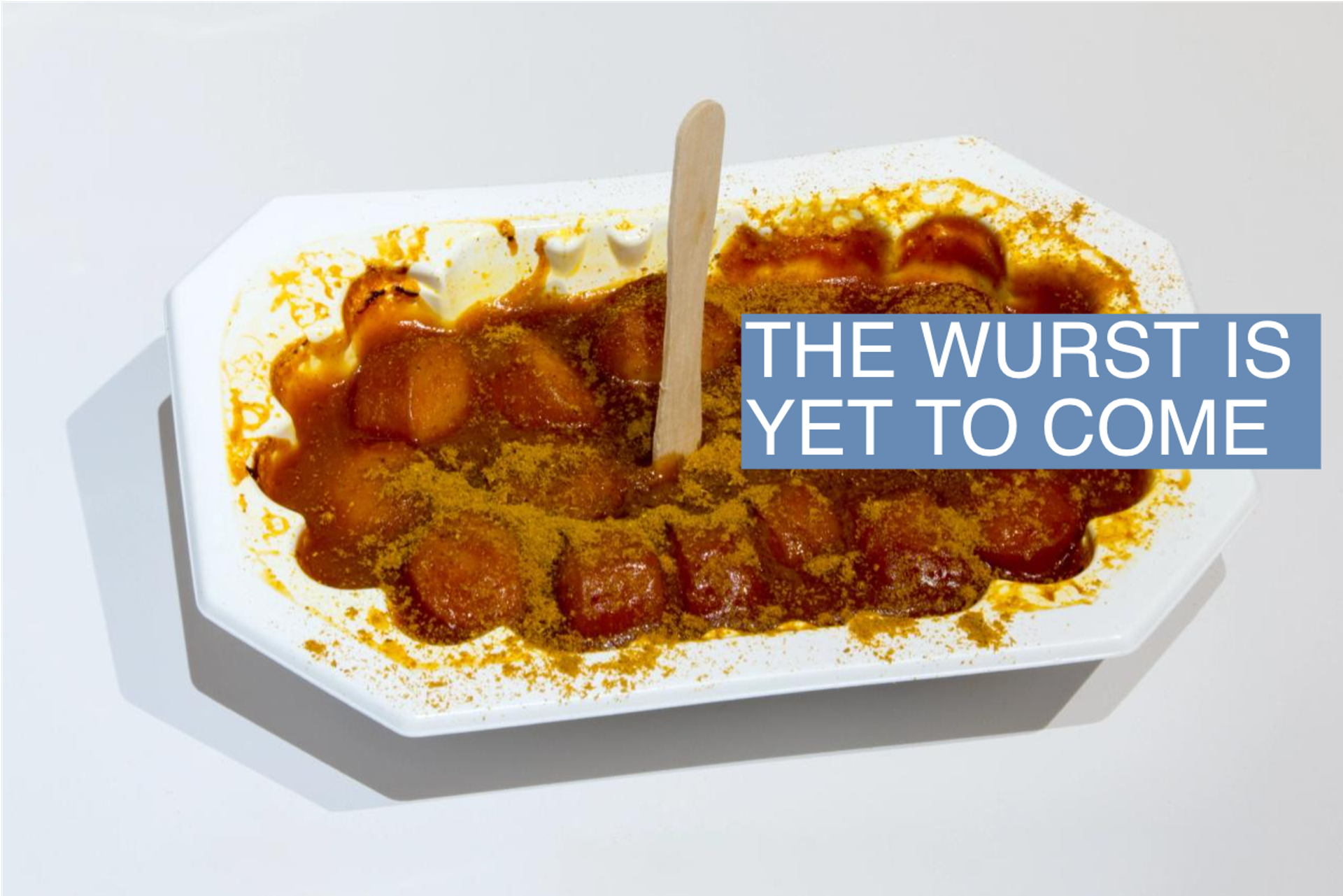The News
Currywurst — the dish consisting of cut-up sausage topped with curry ketchup and curry powder — has been a staple of the German diet for decades, but new data suggests it could be declining in stature as more Germans convert to vegetarian and vegan diets.
Apetito, a large German catering provider, reported Tuesday that currywurst was the third most popular meal served at workplace cafeterias in 2022. The dish had been No. 1 for years before falling to second place in 2020 and 2021.
Spaghetti Bolognese and vegetarian pesto pasta took the top two spots in the latest ranking, leading German media to speculate over the future of a meal that’s ubiquitous at street stands and beer gardens.
Know More
As the iconic story goes, currywurst was invented in Berlin in 1949 by German chef Herta Heuwer, who traded some alcohol to get the Indian spices from British soldiers.
The dish took off thanks to its low cost, protein content, and convenience: Currywurst is usually eaten with a disposable fork, while standing up or sitting down, often alongside hot french fries.
Meanwhile, the doner kebab, a version of the Middle Eastern schwarma dish made popular by Turkish immigrants, has risen in popularity as a German fast food staple.
A YouGov survey last year found that 45% of German adults said they prefer doner kebab over currywurst, while 37% chose currywurst. Much of the divide was generational, with older men largely preferring currywurst and doner kebab fans skewing younger and more female.
As an ode to the history and impact of the dish, Berlin even had a Currywurst Museum. But it closed at the end of 2018, just before currywurst slipped from the top of Apetito’s annual ranking.
Step Back
The Berliner Zeitung newspaper reported that it was notable that a vegetarian dish, the pesto pasta, eclipsed currywurst for the No. 2 spot.
Apetito noted that several other vegetarian dishes, included chili sin carne and veggie curry, have also grown in popularity as more of the German public has reduced their intake of meat.
According to a USDA report from January, more than half of all Germans are considered “flexitarians.” Germany has the highest rate of vegetarianism in Europe, and vegans numbered over 1.5 million last year.
Notable
- “Curry” is an Anglicized form of the Tamil word “kaṟi,” which refers to sauce made from the curry tree in the Indian subcontinent. The Atlantic pointed out that the term was then used by the British to refer to a “variety of spicy, saucy dishes” that “ended up being lumped together under one name.”
